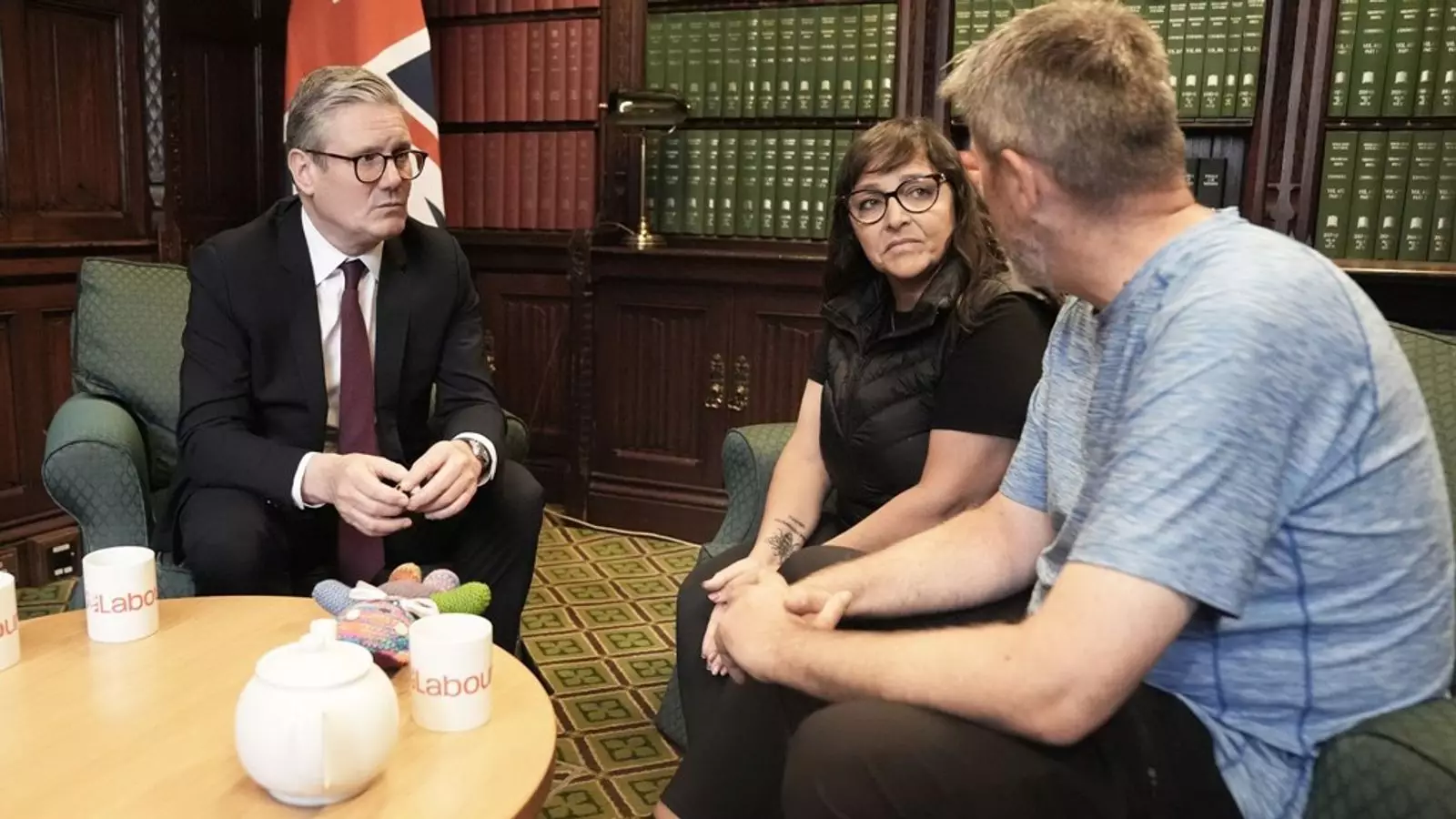The visceral pain of losing a child is a hell that no parent should endure, yet from that anguish, profound strength can sometimes emerge. Figen Murray embodies this resilience following the tragic death of her son, Martyn Hett, in the abhorrent Manchester Arena terror attack of May 2017. A person’s heart breaks at the thought of a life cut short in an explosion of senseless violence, yet Murray’s response to tragedy has become a compelling story of unwavering tenacity. This is not merely about personal grief; it is about transformative action—an impressive testament to how individual suffering can catalyze societal change.
In a world hell-bent on progress but often mired in bureaucratic obstacles, Figen’s journey brings clarity to the lingering question: how far will one go to protect the innocents? When faced with politicians who seemed to lose interest in the evolving threats of terrorism, she made a bold proclamation of defiance by walking 200 miles from the site of her son’s death to Downing Street. This was not just a physical journey, but an emotional and ethical stand against indifference and lethargy in the face of grave danger. The callousness of time and neglect by those in power didn’t merely warrant her action; it demanded it.
Martyn’s Law: A Beacon of Hope
The introduction of “Martyn’s Law,” legislation aimed at safeguarding public venues against terrorist threats, marks a significant turning point in the discourse on safety in communal spaces. At its core, the law is not just a set of procedures; it is a manifesto for change, an emphatic statement that society will not succumb to fear, but rather rise in solidarity and vigilance. The horror of that day in Manchester resonated deeply across communities, highlighting an urgent need for reform in how public spaces manage safety.
Murray’s tireless advocacy has not gone unnoticed, as the new law carries with it a dual message of vigilance and compassion. It serves as a reminder that we must not ignore the potential threat that sits at the intersection of public gatherings and extremist ideologies. It asks us to reckon with the uncomfortable reality—that the lives we cherish are never guaranteed safety, necessitating proactive measures. Emma Kay, co-founder of WalkSafe, hailed the legislation as “hugely progressive,” arguing that safety initiatives are paramount in making venues more appealing to patrons, especially vulnerable groups. This shift towards prioritizing safety is not merely a legislative necessity; it is a moral imperative.
The Need for Education in Combatting Radicalization
A key aspect of Figen Murray’s advocacy is her awareness that prevention begins with education. After her loss, she embarked on a transformative journey of her own by pursuing a master’s degree in counter-terrorism. Her decision to educate herself stems from the unsettling realization that understanding the psyche of radicalization could shape a more secure future. This adds layers to her narrative, showcasing that grief can evolve into action through knowledge.
In an age rife with misinformation, the initiative to introduce programs like the Netflix drama “Adolescence” into schools is a brilliant move aimed at enlightening younger generations about the insidious tactics employed by extremist groups. Through these dialogues, our youth can gain a critical understanding of the subtleties of manipulation that can ensnare them or their peers. The goal is clarity—a way to navigate through the web of ideological grooming that lurks within modern society, posing an urgent threat to our young people, charged with an identity crisis in a tumultuous world.
Reflections on Loss and Celebration of Life
Amid her poignant journey through sorrow, Murray holds a vision of her son that underlines both loss and exuberance. As the world reflects on the realities of violence, it is vital to remember those like Martyn who exuded a zest for life—Murray describes him as a party animal who thrived in social scenarios. His spirit serves not just as a memory of who he was, but as a rallying cry for living fully and boldly, undeterred by fear.
Murray’s reflections on what Martyn would think of her progress say more than words can convey. His hypothetical celebration of her achievements reminds us that amidst tragedy, joy can emerge, illuminating the stark dichotomy of human experience. For a mother determined to transform pain into purpose, her legacy is a testament to enduring strength in the face of overwhelming adversity. It reinforces the belief that advocacy stemming from tragedy can, indeed, save lives.

Leave a Reply